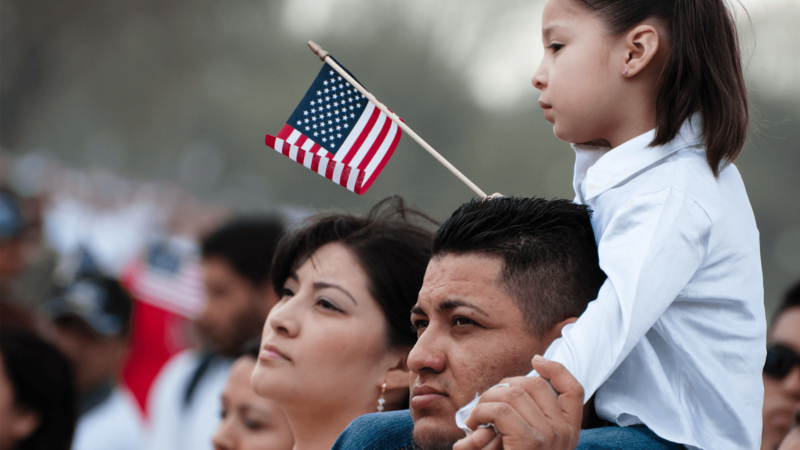Alex Nowrasteh and Benjamin Powell: Immigrants Revitalize Faith in American Institutions
A new book, Wretched Refuse?, documents that newcomers not only increase economic activity but often revitalize faith in free market, limited-government institutions.

Do immigrants bring with them the worst attributes of the countries and societies they are fleeing?
That fear motivates anti-immigrant sentiments from populists and nationalists such as President Donald Trump, who famously declared at the start of his campaign for the presidency that "when Mexico sends its people, they're not sending their best." It also stokes anxiety from an influential group of mostly free market economists such as Harvard's George Borjas, Britain's Paul Collier, and George Mason's Garret Jones, who speculate that mass immigration from countries with illiberal political and economic cultures will undermine countries such as the United States and the United Kingdom.
In Wretched Refuse?: The Political Economy of Immigration and Institutions, Alex Nowrasteh and Benjamin Powell take an exhaustive look at the data and conclude that destination countries not only benefit economically from immigration but that many key markers of liberal democracy—such as support for the rule of law, belief in private property, and trust in government—improve when newcomers arrive en masse.
"One of the things we take a look at sort of in some detail in the book is whether immigrants have more trust in our institutions—whether they have more trust in the legal system, whether they have more trust in American businesses, whether they have more trust in the general sense of government and the way things are run here," says Nowrasteh, director of immigration studies at the libertarian Cato Institute. "Overwhelmingly they do. If it weren't for immigrants in the United States, trust in these institutions would be a lot lower."
Powell, an economist at Texas Tech who also heads up that school's Free Market Institute, points to the experience of Israel in the 1990s, whose population increased by 20 percent, largely due to Jews fleeing the former Soviet Union. "There was a massive flood of people coming from a country with a 70-year history of no rule of law and no economic freedoms [who] piled into Israel with immediate voting rights. Confidence in property rights didn't go down," notes Powell. "Confidence in property rights didn't go down, it went up. [So did] economic freedoms across board…Israel went from something like 90th in the world in economic freedom to 45th during a period of massive immigration from a communist country."
Audio production by Ian Keyser.
Photo: Rrodrickbeiler | Dreamstime.com


Show Comments (30)